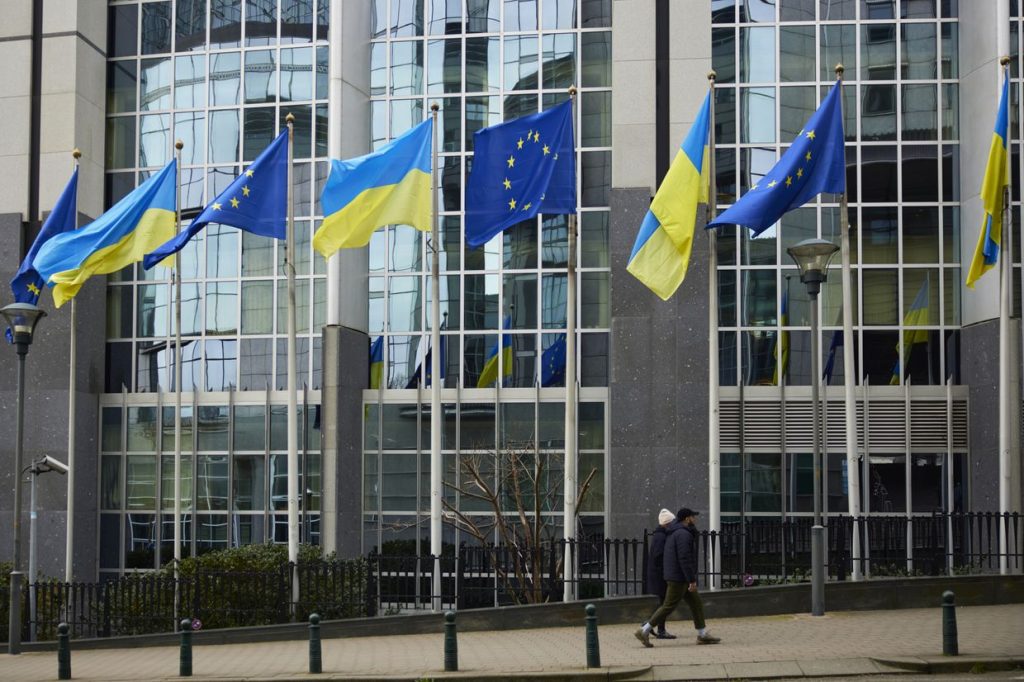The European Council has agreed to extend the suspension of export tariffs for Ukraine and Moldova for another year, along with the implementation of two new safeguard mechanisms to protect the EU market. This decision comes after tensions in some member states, particularly Poland, over the EU’s trade liberalization policies towards Ukraine. Polish Agriculture Minister Czeslaw Siekierski has expressed opposition to the free trade regime with Ukraine, suggesting a gradual mutual liberalization instead. The new measures, which include regular monitoring and the imposition of quotas if exports exceed certain levels, are aimed at addressing some of the concerns raised by Poland.
The extension of the free trade regime with Ukraine and Moldova reaffirms the EU’s unwavering political and economic support for Ukraine. Prime Minister Denys Shmyhal has welcomed the decision, stating that it further strengthens the relationship between Ukraine and Europe. The measures will be in place from June 6, 2024, to June 5, 2025, providing continuity and stability for trade relations between the EU and the two Eastern European countries. This extension is seen as a positive development for Ukraine’s economy and its integration with the European market.
The decision to extend the suspension of export tariffs and introduce new safeguard mechanisms reflects the EU’s commitment to supporting Ukraine’s economic growth and development. By maintaining a free trade regime with Ukraine and Moldova, the EU is helping to facilitate trade and investment opportunities for both countries. Despite some opposition from member states like Poland, the European Council’s decision underscores the importance of fostering strong economic ties with Ukraine. The extension of the measures demonstrates the EU’s recognition of the progress made by Ukraine in aligning with European standards and regulations.
The implementation of regular monitoring and quotas for key agricultural and food products will help to ensure that trade flows between the EU and Ukraine are managed effectively. These safeguard mechanisms are designed to prevent any potential disruptions to the EU market while allowing for continued economic cooperation with Ukraine. By providing a framework for monitoring and managing trade, the EU is able to address the concerns of member states and ensure that the free trade regime remains mutually beneficial for all parties involved. This approach aims to strike a balance between supporting Ukraine’s economic development and protecting the interests of EU member states.
The extension of the free trade regime with Ukraine and Moldova is a significant milestone in the ongoing relationship between the EU and these Eastern European countries. It symbolizes a commitment to deepening economic cooperation and integration, while also acknowledging the challenges and concerns that exist within the EU. By extending the suspension of export tariffs and introducing new safeguard mechanisms, the EU is demonstrating its commitment to supporting Ukraine’s economic growth and ensuring the stability of trade relations. This decision highlights the importance of open and transparent communication between the EU and its Eastern European partners, as well as the shared goal of promoting sustainable economic development in the region.
In conclusion, the European Council’s decision to extend the suspension of export tariffs for Ukraine and Moldova, along with the introduction of new safeguard mechanisms, is a positive step towards strengthening economic cooperation and trade relations. By reaffirming its support for Ukraine and demonstrating a willingness to address concerns raised by member states, the EU is taking concrete actions to promote economic growth and stability in the region. This extension of the free trade regime is a testament to the ongoing partnership between the EU and its Eastern European neighbors, reflecting a shared commitment to mutual prosperity and development.


